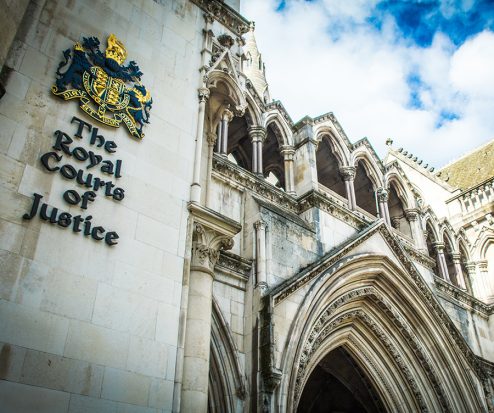The High Court in London has sided with the African Export-Import Bank (Afreximbank) in a dispute with the Republic of South Sudan, ordering the embattled state to repay pandemic and trade-related debts.
On May 8, a judge granted summary judgment in favour of Afreximbank, which had been seeking to enforce repayments under three agreements worth US$63mn, US$250mn and US$400mn.
South Sudan had secured the facilities to boost trade-enabled infrastructure and mitigate the impact of the Covid-19 pandemic. But despite making some repayments, the loans fell into default by 2023.
In a bid to claw back funding, Afreximbank filed a case against South Sudan and the country’s central bank – which had guaranteed much of the debt – last year.
At a January hearing, Afreximbank said it was a “straightforward and simple debt claim” with “no conceivable defence” and that it was now owed principal plus interest of US$657mn by South Sudan.
Sitting judge Lionel Persey KC agreed, granting summary judgment, with South Sudan not attending the hearing.
“I am satisfied that the defendants have no real prospect of successfully defending the claims against them. Nor is there any other compelling reason for a trial,” Judge Persey said.
Afreximbank’s legal team repeatedly attempted to communicate with South Sudan and its central bank through emails and written correspondence to known addresses and the London embassy, the judgment shows.
There was evidence that the defendants received the particulars of claim and were aware of proceedings, the judge decided.
“Both the Republic and the [Central] Bank have failed to engage substantively with these proceedings or this application,” he said.
“Neither has filed any acknowledgement of service or defence. No one attended the hearing on behalf of either defendant. I was invited by Afreximbank to determine the applications in their absence,” he added.
As shown in the judgment, South Sudan previously held talks with Afreximbank over a restructuring of the debt.
Afreximbank highlighted a “very productive” meeting with the Ministry of Finance in September 2023, during which a repayment proposal was due to be presented, according to the judgment.
The plan had been to pay off the debts through the allocation of crude oil cargoes to Afreximbank, it says.
“This proposal was not however fulfilled, with the Republic stating in a letter dated January 5, 2024 that this was due to ‘unforeseen circumstances’ in South Sudan including flooding, conflict in Sudan and fluctuating oil prices,” it says.
“In the same letter, the President of South Sudan requested a restructuring [of] the current loan and repayment term as well as the payment of interest.”
It is unclear what impact the judgment will have on the debt dispute.
A recent wave of violence in South Sudan is threatening to upend a 2018 peace agreement between the rival factions in its civil war, during which 400,000 people died and 2.5 million people were forced from their homes.
The UN’s mission head in the country, Nicholas Haysom, warned last month that the country is “teetering on the brink of a return to full-scale civil war”.
Afreximbank had sought a “reasoned judgment” rather than a straightforward default judgment from the court, arguing this might aid its efforts to enforce the decision in other jurisdictions, the ruling says.







